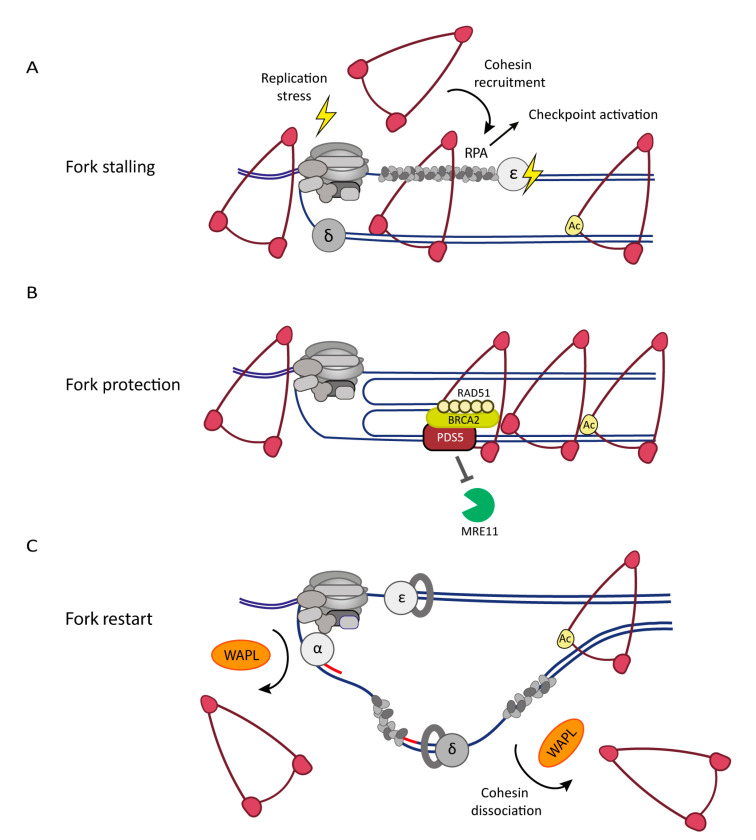Figure 3.
Cohesin dynamics in the DNA replication stress response: (A) Replication fork stalling can cause uncoupling of the polymerase from CMG, resulting in stretches of RPA-coated ssDNA that activate the replication checkpoint and are thought to promote cohesin recruitment. (B) The stalled fork undergoes extensive remodeling, often involving fork reversal to aid fork restart. Cohesin may be involved in protecting stalled replication forks and in facilitating template switching to repair DNA lesions. PDS5 contributes to the recruitment of BRCA2 and RAD51, which protect reversed forks against excessive nuclease processing. (C) Repair and restart depend on WAPL-mediated cohesin mobilization, possibly by increasing cohesin turnover at stalled forks. DNA replication is resumed while cohesin levels are decreased. Not all factors involved are shown in the figure for simplicity; for further details, see text.

